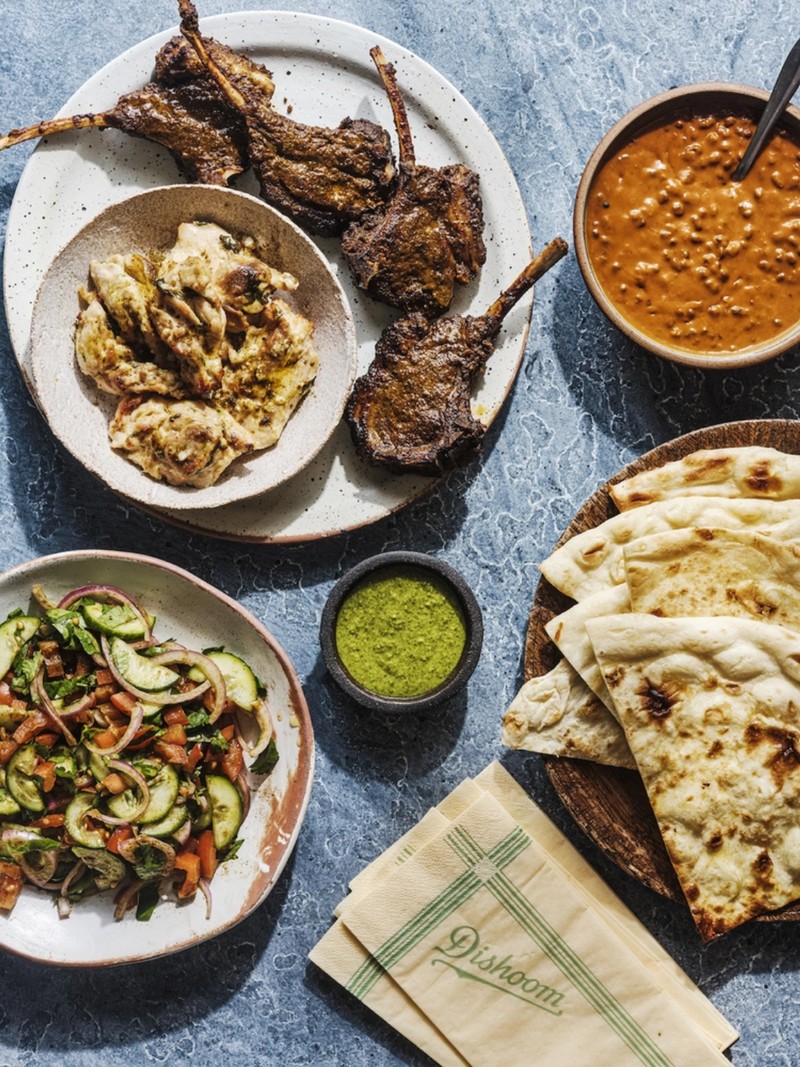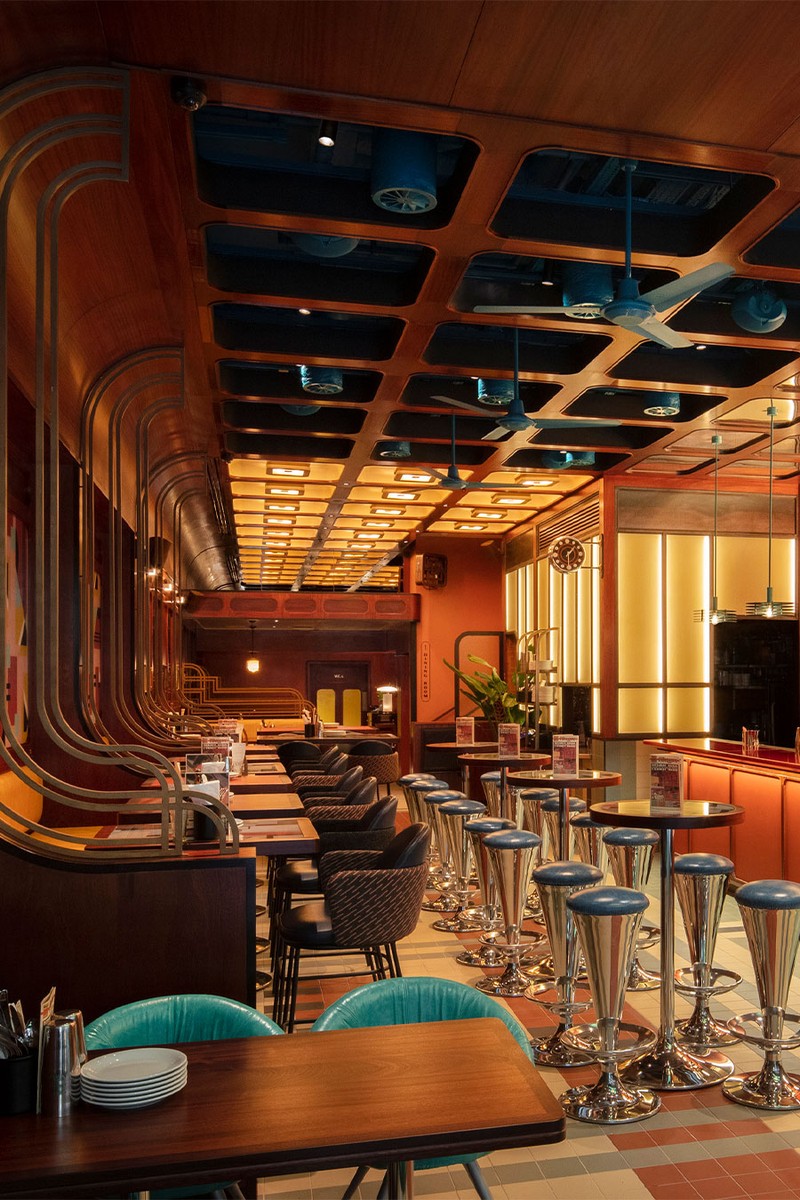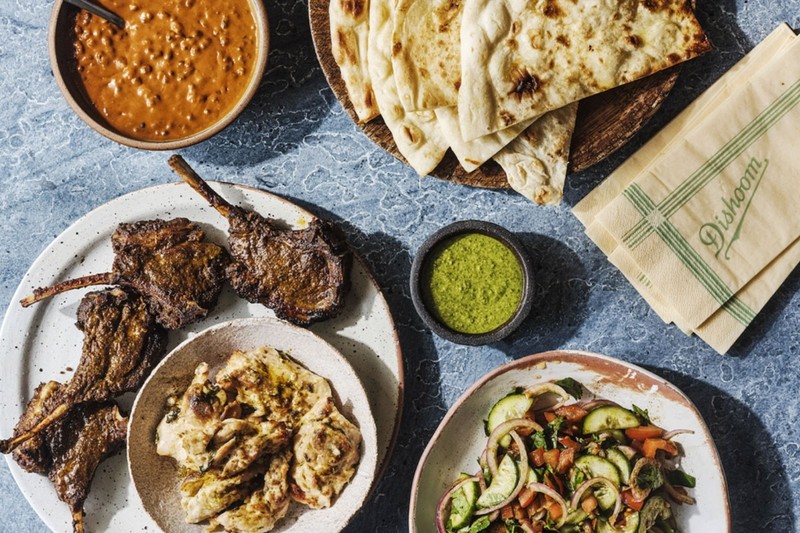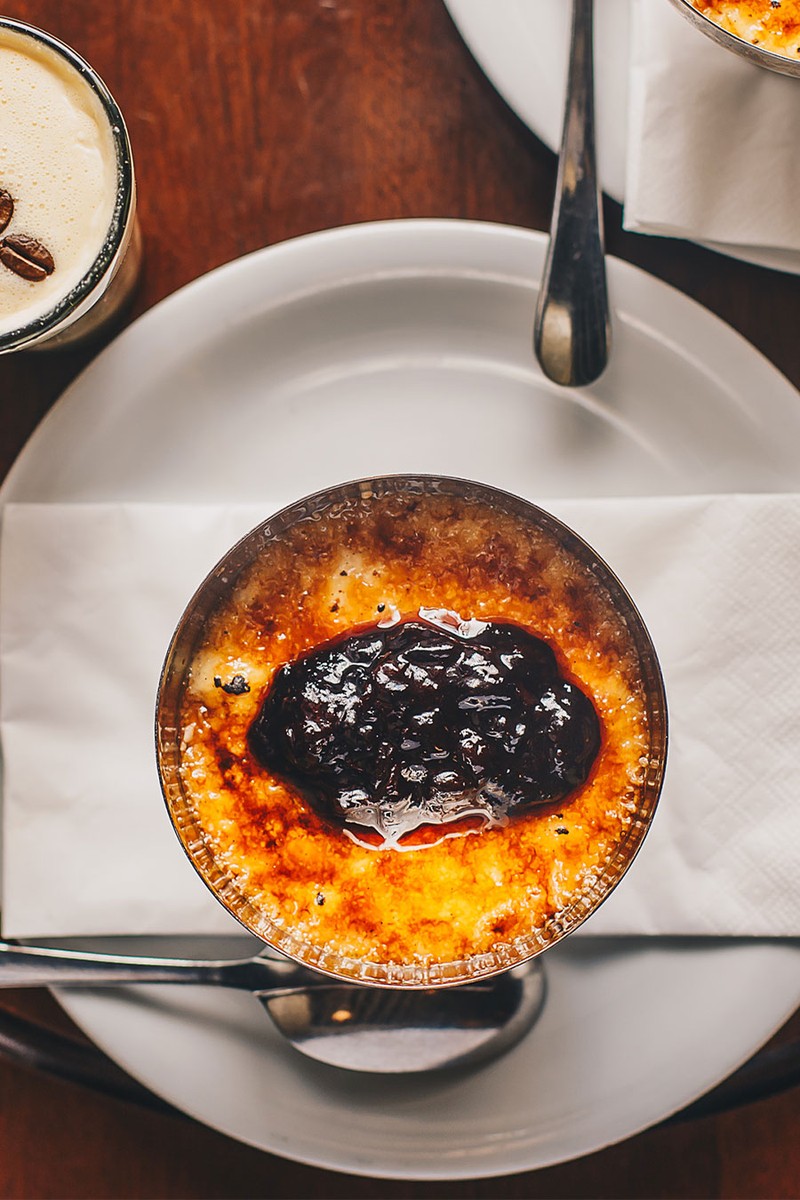Business Lessons From A Co-Founder Of Dishoom
In 2010, London had great Indian food, but it was mostly known for curry houses. These were part of London’s food scene, a brilliant British tradition, but not particularly Indian. At the other end of the scale, you had Michelin-starred, chef-led restaurants that were more for special occasions – great food, but expensive. Neither of these options really expressed Indian food and culture in a way Shamil and I felt it could be.
The inspiration for Dishoom came from wanting to fill that gap. We thought, why not do something that was rooted in Indian culture and showcased Indian food in a way that hadn’t been done before in London? At that time, in 2010, if you asked someone to name things about India, they’d likely mention Bollywood, the Taj Mahal, cricket, or the days of the Raj. That’s fine, but India and Britain have such a long history together, and some of that relationship had become a little stereotypical, a bit taken for granted.
Both Shamil and I spent a lot of time in Bombay as kids. It’s a very special place for us, so we wanted Dishoom to represent Indian food and culture in a way that was meaningful to us. It’s a place that welcomes all types of people, full of migrants and immigrants from across India and the world. That sense of diversity and identity was something we wanted to celebrate through our restaurants and food.
Starting out was incredibly tough as neither of us had worked in restaurants before. That was a big challenge, but it also worked in our favour in some ways. We didn’t know the usual way of doing things in the restaurant world, so we could focus on the guest experience, the team, and what the brand could mean to people. If we had come from a restaurant background, we might have been more focused solely on the food or the service. Instead, we could think about hospitality as a whole and offer an experience that hadn’t been done before.
Opening our first restaurant was a real learning curve. We opened in Covent Garden, next to Jamie Oliver’s restaurant, which was a huge deal at the time. Instagram didn’t exist, and Facebook was still pretty new. So, we had to work hard to get the word out. Food bloggers were a thing back then, and we made friends with all of them – we might have been the most blogged-about restaurant in the world at that point.
One of the biggest challenges was getting people to see Dishoom as an all-day venue. We’re known for our breakfasts now, but back then no one was going to an Indian restaurant for breakfast – or even lunch. But in India, 1.8 billion people eat breakfast every day, so why not here? We had to work hard to shift perceptions about Indian food.
We tried every kind of marketing at the start. I remember finding old bicycles, painting them bright colours, and leaving them outside the restaurant with ‘Dishoom’ written on them – real guerrilla marketing. We handed out chai samples and brought in food bloggers, but ultimately, it’s the experience people have in the restaurant that matters most. No amount of marketing can replace that. When people recommend us to their friends, that’s the biggest compliment. It means we’ve done something right.
We never wanted to grow for the sake of growth. Our goal was to find the right opportunities to create something beautiful and brilliant. A year after opening, we did a wild pop-up at the South Bank Festival of Britain, where people danced on tables and drank from spiked coconuts. That summer was all about fun, but it made us realise we could expand our offering around the capital.
From the beginning, we’ve focused on deepening not diluting. Each restaurant must be better than the last, whether in design, food, drinks or the story told through the space. When we opened our second restaurant in Shoreditch in 2012, it was a deeper expression of our culture. Every time we open a new restaurant, we return to Bombay to reconnect, draw inspiration, and source furniture.
We want each restaurant to feel distinct – for people to feel emotionally connected to each space. But it’s not just the physicality. It’s the food, the service, the way our team look after guests. There’s no single reason why we’ve had success, but I think it’s a combination of all those things.
We’ve always wanted to celebrate Indian culture. Diwali, Eid, Christmas – all these important festivals that people of Indian heritage celebrate – were things we wanted to make a part of Dishoom. Our first Diwali celebration was held in the basement of the Covent Garden restaurant. We screened a movie, had activities for kids, and made it a special occasion for the community.
Building a strong team has been crucial to our success. It’s not just Shamil and me – there are so many fantastic people who have been with us since the beginning. They are smart, talented, and care deeply about guests and their colleagues. They’ve been key in defining how we work and have played a critical role in making what we do brilliant.
At Dishoom, you need a big heart to succeed. Working in our restaurants is hard – ours are some of the busiest in London, if not the world. What sets our team apart is the sense of ‘seva’, which means selfless service. We do everything with a big heart and in a first-class way. It’s about technical brilliance, but also about how you make people feel.
As a leader in a business, your job is to support the team and give direction when needed. But I’ve learnt that the smartest thing I can do is lean on people who are better than me at what they do. When they own their work, they’re proud of it, and that’s what really drives great results.
Keeping high standards across multiple locations isn’t easy. For us, it’s about having constant conversations with the team about what’s important. It may sound obvious, but we care deeply about awesome food and drink, awesome service, and a happy team. Many in the industry face cost pressures and strip out expenses, but we focus on making people happy. If the food and service are excellent, and the team is happy, more people will come. That’s our priority.
The biggest setback for us was the pandemic. We had six or seven restaurants open, and overnight we had to shut everything down. We had a thousand employees, no revenue, and no idea what kind of government support would come. We promised our staff they wouldn’t lose their jobs, which was important for us to give them security. Every week, we had Zoom calls with the entire team, just to keep them updated and answer any questions they had. Sometimes, we didn’t have the answers, but it was crucial to have those conversations to keep everyone connected.
Competition in the restaurant industry is great because it raises the bar. I love when the food scene improves, and I think competition keeps everyone sharp. Dishoom is rooted in telling the story of Bombay’s food and culture, and that won’t change no matter how many new restaurants open.
To succeed in the restaurant industry, you need to care about the right things. It’s not just about the food. Hospitality has to be at the heart of what you do. We don’t just cook food or make drinks – we look after people. That’s what gets me out of bed in the morning, and if that isn’t part of your core, then maybe this industry isn’t the right fit.
For anyone thinking of getting into the restaurant business, my advice is simple: work in one first. It’s not an easy industry, and you need to understand the challenges from the inside. Also, know why you’re doing it. If it’s because you want to make people happy – whether that’s your team or your customers – then you’re on the right track. But if it’s just because you think you’re a good cook, maybe think twice.
And if you’ve never been to Dishoom, here’s what you should order… For breakfast, try the chole puri – it’s a huge fried bread with chickpeas. If you want something we’re known for, the bacon naan roll with an egg is a classic. For lunch or dinner, go for our dhal or chicken ruby. But the unsung hero? Our murgh malai – it’s a marinated grilled chicken that’s absolutely delicious.
Dishoom Permit Room is now open at North Bailey House, New Inn Hall Street, Oxford, OX1 2RP
Visit Dishoom.com
DISCLAIMER: We endeavour to always credit the correct original source of every image we use. If you think a credit may be incorrect, please contact us at [email protected].



/https%3A%2F%2Fslman.com%2Fsites%2Fslman%2Ffiles%2Farticles%2F2024%2F11%2Fdishoom-battersea-credit-john-carey-full-bleed.jpg?itok=yMkWvobI)



